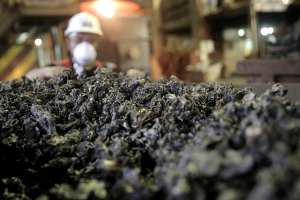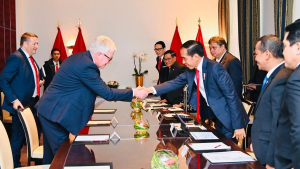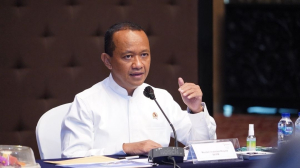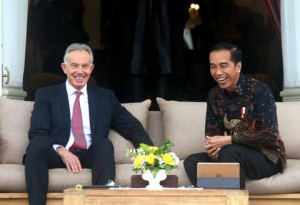Bahlil defends substance of revised Mining Law
Minister of Energy and Mineral Resources (ESDM) Bahlil Lahadalia has defended the revised Mining Law recenty ratified by the House of Representatives (DPR).
He cited that the revised law introduces significant changes, including priority access to mining permits (IUP) for cooperatives, religious organizations, and small businesses.
"Previously, mining permits were mostly controlled by large corporations headquartered in Jakarta. We want to change that," Bahlil said in Jakarta on Friday, February 21, 2025.
He added that the revised law allows universities to receive financial benefits from mining activities conducted by state-owned enterprises (SOEs), regional enterprises (ROEs), or private companies under partnership agreements.
"Universities in mining regions, such as Sulawesi, Maluku, Papua, and Kalimantan, have requested access to scholarships and funding for research and development (R&D). This policy ensures that they can benefit from local mining activities," Bahlil said.
However, he added, instead of directly receiving mining licenses, universities will collaborate with SOEs or private companies, ensuring that educational institutions gain financial and research benefits without direct involvement in mining operations.
Previously, Sartika Nur Shalati, Policy Strategist at green energy promoter CERAH, has criticized the revised law for granting mining concessions (WIUP) for universities through partnerships with SOEs, ROEs, or private enterprises.
"Universities, which should uphold objectivity and scientific integrity, risk being silenced and forced to support policies that benefit mining companies, even if they contradict sustainability principles and social responsibility," Sartika said in a statement ealier on Friday.
Critics argue that this move is particularly alarming in light of budget cuts to the education sector, which have increased universities' dependence on external funding. Sartika warned that this opens the door for mining companies to exert influence over academic institutions.
"Mining corporations could become major donors, easily steering universities to support the fossil fuel industry," Sartika said.
She noted that the dominance of state and private coal companies could hinder Indonesia’s transition to renewable energy.
"With SOEs, ROEs, and private enterprises primarily focus on coal, universities will struggle to promote research on renewable energy technologies due to limited resources and potential conflicts of interest with industry partners," she cited.
Herdiansyah Hamzah, a lecturer at Samarinda-based Mulawarman University and a member of the Indonesia Caucus for Academic Freedom (KIKA), accused the provision in the law as a strategy by the government and the parliament to suppress academic dissent as well as turning universities into mouthpieces for the mining industry and legitimizing harmful extractive practices under the guise of academic research.
Tag
Already have an account? Sign In
-
Start reading
Freemium
-
Monthly Subscription
30% OFF$26.03
$37.19/MonthCancel anytime
This offer is open to all new subscribers!
Subscribe now -
Yearly Subscription
33% OFF$228.13
$340.5/YearCancel anytime
This offer is open to all new subscribers!
Subscribe now






